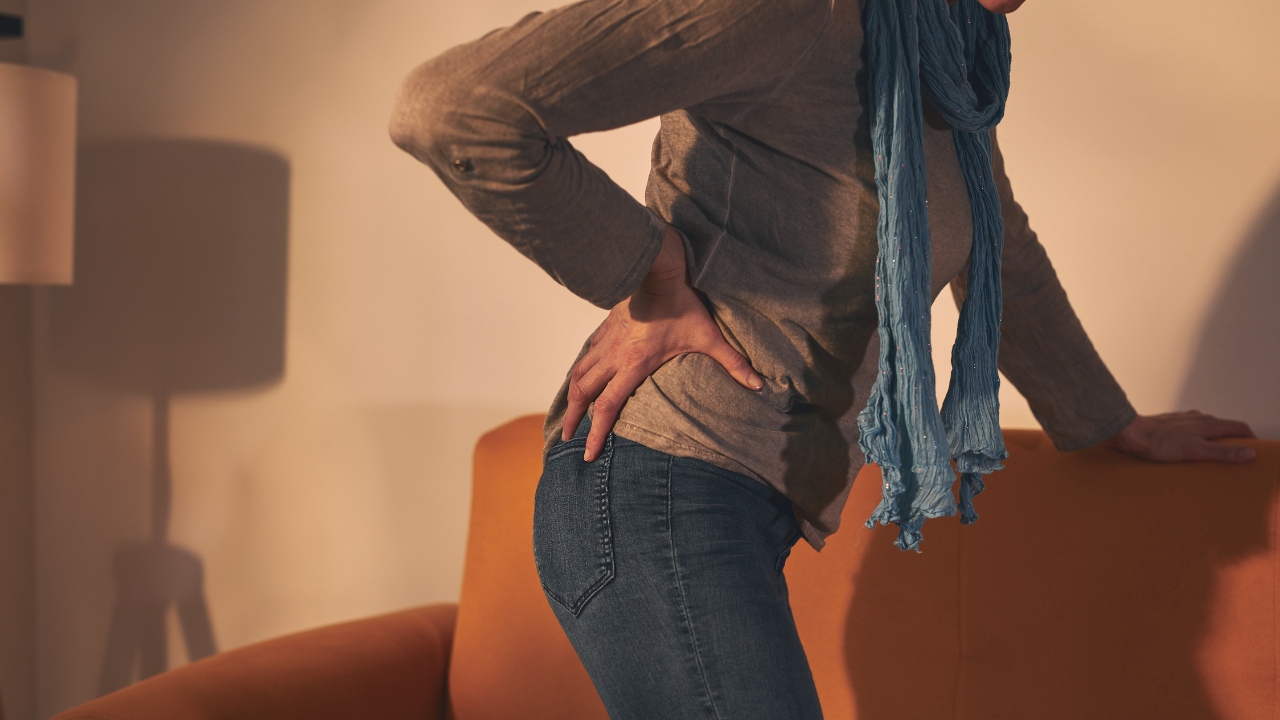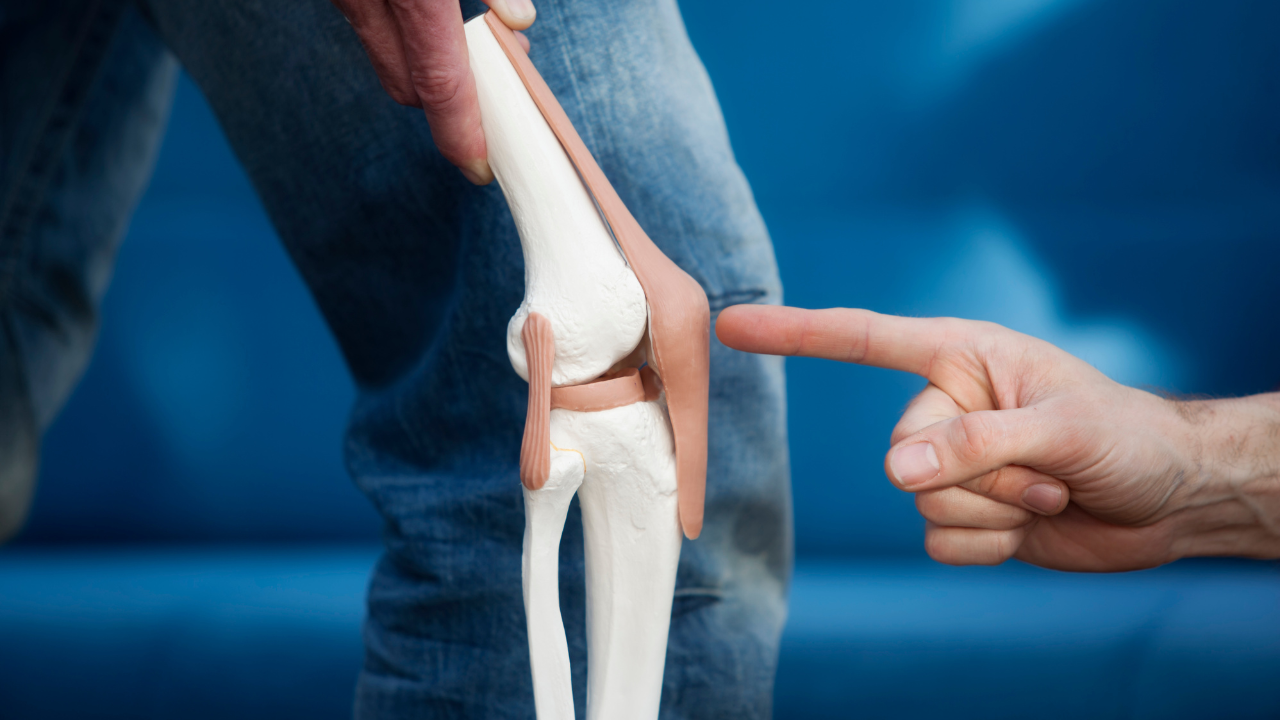What Are the Major Causes of Winter Hip Pain and How to Treat It?

Strong 8k brings an ultra-HD IPTV experience to your living room and your pocket.
Winter can be a challenging season for those dealing with joint discomfort, particularly in the hips. The cold weather often intensifies arthritis-related hip pain, causes stiffness, and impacts mobility. Understanding the winter hip pain causes and learning effective prevention and treatment strategies can make a significant difference in staying active and pain-free during the colder months.
1. What Are the Major Causes of Winter Hip Pain?
Cold Weather Impact on Joints
Cold temperatures restrict blood flow to muscles and joints, causing stiffness and discomfort. This reduced circulation increases joint sensitivity and makes movements feel more challenging.
Arthritis-Related Hip Pain
Winter often worsens arthritis symptoms. The drop in barometric pressure combined with the cold can increase swelling and stiffness in the hip joints. This is particularly common for individuals with osteoarthritis or rheumatoid arthritis.
Previous Injuries or Chronic Conditions
Past injuries, such as fractures or strains, often flare up during the winter. Chronic conditions like bursitis or tendinitis are also aggravated by colder temperatures, leading to hip pain.
Reduced Physical Activity
During winter, many people tend to move less. This inactivity can lead to weakened muscles around the hips, causing stiffness and increasing the risk of pain during simple movements.
2. How Can You Identify Winter Hip Pain?
Winter hip pain symptoms often include:
Stiffness or difficulty moving the hip joint.
Sharp or dull aching in the hips, thighs, or buttocks.
Pain that worsens after sitting or standing for prolonged periods.
If you experience persistent or severe pain that limits your mobility, it’s essential to consult a healthcare provider.
3. How Can Cold Weather Impact Hip Joints?
What Is the Science Behind Cold-Induced Pain?
The cold causes muscles and ligaments to contract, reducing flexibility and mobility. Combined with changes in atmospheric pressure, this can lead to increased tension in the hip joints.
How Can You Combat These Effects?
Keep your body warm by wearing insulated clothing.
Perform gentle stretches or light activities to increase circulation.
Stay hydrated, as dehydration can make joint tissues more vulnerable to stiffness.
4. Which Treatments Work Best for Winter Hip Pain?
Heat Therapy for Hip Pain Relief
Applying heat to the affected area can reduce stiffness and improve blood flow. Use heating pads, warm baths, or heat wraps to relax the muscles and alleviate pain.
Anti-Inflammatory Therapies for Hip Joints
Over-the-counter anti-inflammatory medications like ibuprofen can help reduce swelling.
Natural remedies such as turmeric, ginger, and omega-3 supplements can also manage inflammation.
Pain Relief Techniques for Hip Pain
Massage therapy, foam rolling, and physical therapy can ease tight muscles and reduce pain. Stretching exercises specifically targeting the hip flexors can also provide immediate relief.
5. What Are the Best Remedies for Winter Hip Pain?
Lifestyle Adjustments
Stay active with low-impact exercises such as walking, swimming in a heated pool, or yoga.
Maintain an anti-inflammatory diet rich in leafy greens, fatty fish, and nuts to support joint health.
Alternative Therapies
Acupuncture and deep-tissue massages can help improve blood flow and reduce joint tension. Working with a physical therapist can also provide long-term benefits.
6. How Can You Prevent Hip Pain During Winter?
Daily Habits to Protect Your Hips
Dress warmly to insulate the hip area.
Avoid sitting or lying down for long periods without moving.
Fitness Tips for Winter
Warm up indoors with light cardio or stretches before exercising outdoors.
Wear proper footwear to prevent slips and falls, which can aggravate hip conditions.
7. When and Where Should You Seek Professional Help?
When to See a Doctor
If your hip pain persists, worsens, or is accompanied by swelling, redness, or fever, it’s time to consult a healthcare professional. Severe pain that limits daily activities also warrants immediate attention.
Where to Get Expert Care
Specialized clinics like the Spine and Pain Clinic of Texas offer tailored treatments for hip pain. From advanced diagnostic tools to personalized care plans, they provide comprehensive solutions for managing winter hip pain.
8. How to Stay Consistent with Hip Care in Winter
Practical Tips for Consistency
Set a daily routine for stretching and low-impact exercises.
Use fitness apps or virtual classes to stay motivated.
Incorporate small activities like walking indoors to maintain joint mobility.
Making Hip Care a Lifestyle
Consistency is key to keeping hip pain at bay. Regular exercise, a balanced diet, and proper posture can make a significant difference in managing pain and preventing stiffness.
Conclusion
Winter hip pain can feel overwhelming, but it doesn’t have to limit your daily activities. By understanding the winter hip pain causes and incorporating effective treatments for hip pain in winter, such as heat therapy for hip pain relief and hip strengthening exercises, you can reduce discomfort and stay active.
For professional care and long-term relief, consult the Spine and Pain Clinic of Texas. Their team of specialists can provide personalized treatment plans tailored to your specific needs, helping you enjoy a pain-free winter. Don’t let the cold weather hold you back—take proactive steps to support your joint health today!
FAQs: What Are the Major Causes of Winter Hip Pain and How to Treat It?
1. Why does hip pain worsen in winter?
Cold weather tightens muscles and reduces blood flow to the hip joints, leading to stiffness and discomfort. For those with arthritis or previous hip injuries, the drop in temperature and barometric pressure can exacerbate symptoms, making hip pain more noticeable in winter.
2. What are the common causes of winter hip pain?
The major causes include:
Cold weather impact on joints: Reduced flexibility and increased stiffness.
Arthritis-related hip pain: Aggravated by low temperatures and barometric pressure changes.
Previous injuries: Conditions like bursitis or tendinitis often flare up in colder weather.
Inactivity: Staying sedentary during winter weakens supporting muscles, increasing pain.
3. How can I prevent hip pain during winter?
You can prevent winter hip pain by:
Dressing warmly and layering clothes to keep your hips insulated.
Staying active with low-impact exercises such as walking or yoga.
Performing regular stretching routines to maintain flexibility.
Warming up before outdoor activities to prevent injury.
4. Is heat therapy effective for hip pain relief?
Yes, heat therapy is highly effective. It relaxes tight muscles, improves blood flow, and reduces stiffness. You can use heating pads, warm compresses, or hot baths to relieve hip pain. Apply heat for 15–20 minutes at a time for the best results.
5. What are the best exercises for winter hip pain?
Some effective exercises include:
Clamshells: Strengthen the gluteal muscles and stabilize the hips.
Bridge exercises: Relieve pressure on the hips and strengthen the lower back.
Gentle stretches: Hip flexor stretches and seated forward bends to improve flexibility.
Always perform these exercises gently and consult a professional if you’re unsure about your technique.
6. Can arthritis make hip pain worse in winter?
Yes, arthritis symptoms often worsen in winter. Cold temperatures and changes in barometric pressure can increase joint stiffness, swelling, and pain, making movement more difficult for those with hip arthritis.
7. Are anti-inflammatory therapies safe for winter hip pain?
Yes, they are generally safe if used correctly. Over-the-counter medications like ibuprofen can reduce swelling and pain. Natural remedies like turmeric, ginger, and omega-3 supplements are excellent options for those who prefer alternative treatments. Always consult your doctor before starting any new therapy.
8. How do I know if my hip pain requires medical attention?
You should consult a healthcare professional if:
The pain is persistent or worsening.
You notice swelling, redness, or warmth around the joint.
You experience difficulty walking or moving the hip.
The pain interferes with your daily activities.
9. What are some natural remedies for winter hip pain?
Natural remedies include:
Heat therapy: Relax muscles and reduce stiffness.
Anti-inflammatory foods: Include turmeric, ginger, leafy greens, and omega-3-rich foods in your diet.
Massage therapy: Improves blood flow and reduces joint tension.
Stretching routines: Helps maintain joint flexibility and mobility.
10. Can lack of activity cause hip pain in winter?
Yes, inactivity during winter can weaken the muscles that support your hip joints. This can lead to stiffness, reduced mobility, and increased pain. Incorporating daily movement, even light activities like walking or stretching, can help prevent hip pain.
11. Can I still exercise outdoors in winter with hip pain?
Yes, but it’s important to warm up first, dress warmly, and avoid icy or uneven surfaces that could lead to injury. Low-impact activities like walking or light jogging can be safe, but if the pain worsens, it’s best to switch to indoor exercises.
12. When should I consult the Spine and Pain Clinic of Texas?
You should consider visiting the Spine and Pain Clinic of Texas if:
You experience persistent or severe hip pain despite home treatments.
Your symptoms include swelling, redness, or difficulty moving the joint.
You need personalized guidance or advanced therapies to manage your hip pain effectively.
Medical Disclaimer
This article is intended for informational purposes only and is not a replacement for professional medical advice. Always consult a qualified healthcare provider regarding your specific condition and treatment options.
Note: IndiBlogHub features both user-submitted and editorial content. We do not verify third-party contributions. Read our Disclaimer and Privacy Policyfor details.



